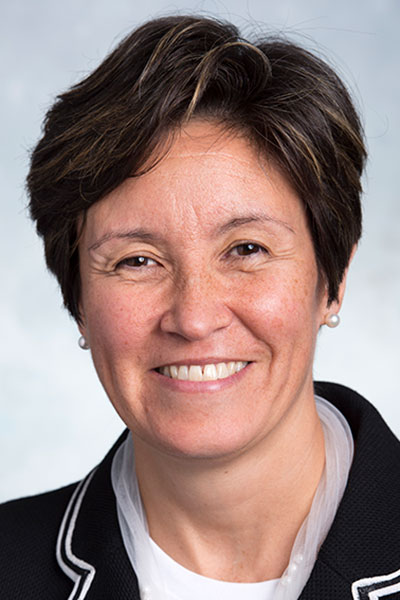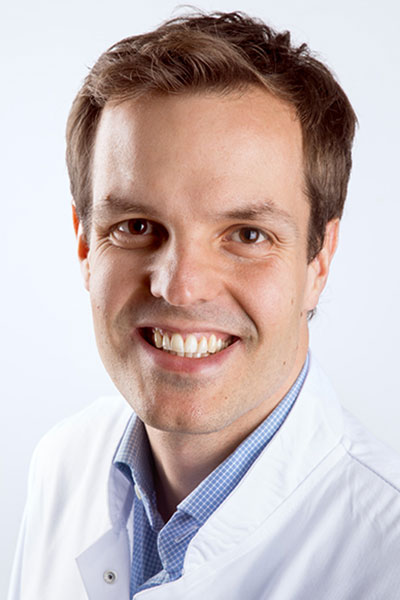LOCAL THERAPY – BEST BREAST PRACTICE
Tuesday, December 6 • 10:00 am – 12:00 pm CT • Hemisfair Ballroom 1&2

Presentation: Contralateral mastectomy in patients with germline mutations
Katharine Yao, MD
Chief, Division of Surgical Oncology, and Vice Chair, Research and Development
NorthShore University Health System
Clinical Professor of Surgery
University of Chicago Pritzker School of Medicine
What is your presentation about?
My talk will focus on those patients who have been diagnosed with a breast cancer and who carry a germline mutation and whether they need to undergo contralateral prophylactic mastectomy. I will examine some literature on the pros and cons of undergoing contralateral prophylactic mastectomy for these patients. I will also go over some new surgical techniques for mastectomy that apply to this higher risk population.
What makes this topic important in 2022?
More and more breast cancer patients are choosing to undergo bilateral mastectomy for their breast cancer, especially those who have a germline mutation. While there is robust data on contralateral risk for BRCA carriers who have been diagnosed with breast cancer, there is little data for patients who carry other germline mutations. We are discovering more and more nonBRCA germline mutations in breast cancer patients because of increased access to genetic testing. Therefore, it is important to review the utility of bilateral mastectomy for these patients.
How/why did you become involved with this area of breast cancer research or care?
I am a full-time breast surgeon in an area of the country with a large number of BRCA carriers. My institution has started several genetic testing programs where genetic testing is offered to patients directly through a screening survey performed at their primary care doctor appointment or at the time of screening mammogram. These programs have generated many high-risk patients that we see in our clinics and some that are unfortunately diagnosed with breast cancer. However, advising these patients on contralateral prophylactic mastectomy was difficult since we don’t have robust literature on contralateral risk for nonBRCA germline mutation carriers. I partnered with a genetic testing company we were working with at the time to examine their database on the prevalence of germline mutations in those patients with second breast cancers. We found that women with germline mutations were more likely to have a second breast cancer than noncarriers.

Presentation: RT: How short can it be
David Krug, MD
Deputy Clinic Director
UKSH University Medical Center, Schleswig-Holstein, Germany
Radiation Oncology Specialist
Saphir Radiosurgery Center, Northern Germany and Frankfurt
What is your presentation about?
My presentation is about fractionation in radiotherapy for breast cancer. Traditionally, adjuvant radiotherapy was delivered over the course of 5-7 weeks (25-28 treatments) to the whole operated breast. Technological advances, as well as a better understanding of breast cancer biology, have allowed us to deliver a full course of adjuvant whole-breast radiotherapy over the course of 1-3 weeks (5-16 treatments), reducing the time burden and cost significantly. Furthermore, better risk stratification has allowed for the use of partial breast irradiation. This is a form of de-escalated adjuvant radiotherapy which only treats the resection cavity with an additional safety margin instead of the whole breast. Besides decreased treatment time, this allows for a decrease in the incidental dose to surrounding normal tissue and hence, a decreased risk of adverse effects of radiotherapy.
What makes this topic important in 2022?
Contemporary treatment for breast cancer should be tailored to the individual patient with proper assessment of tumor biology, risk profile and wishes. The above-mentioned developments allow for an individualized approach. Decreased treatment time and treatment costs raises affordability and broadens access to cancer care.
How/why did you become involved with this area of breast cancer research or care?
I have been involved in radiotherapy for breast cancer since residency. When I started my career, radiotherapy for breast cancer was delivered with a one-size-fits-all approach. I have always been fascinated by the strong interdisciplinary drive and related advances that have improved outcomes in breast cancer patients and I am thrilled to see that individualized treatment approaches are now widely used for radiotherapy in breast cancer.

